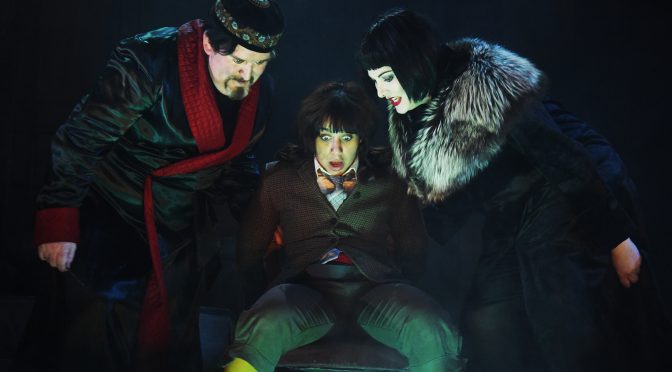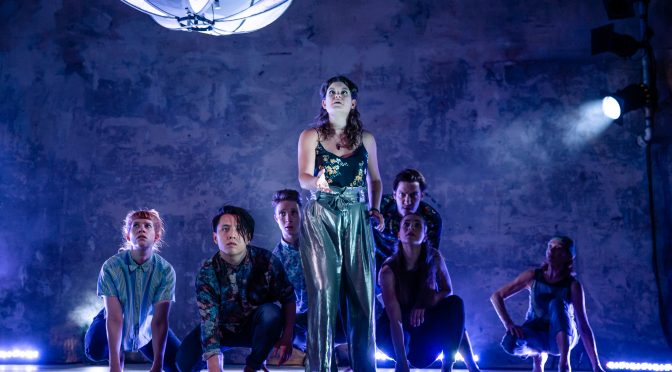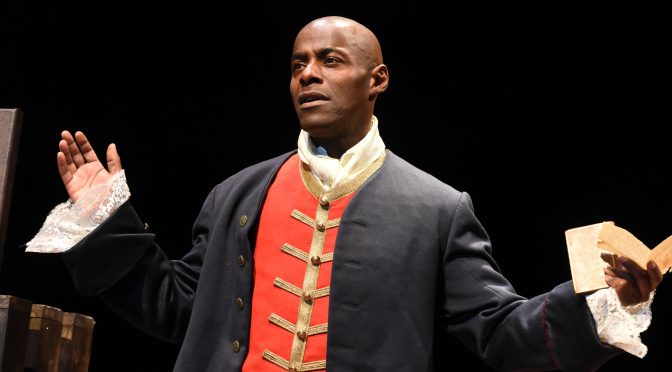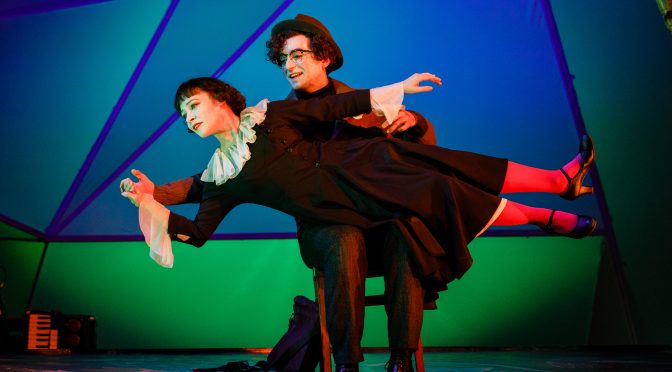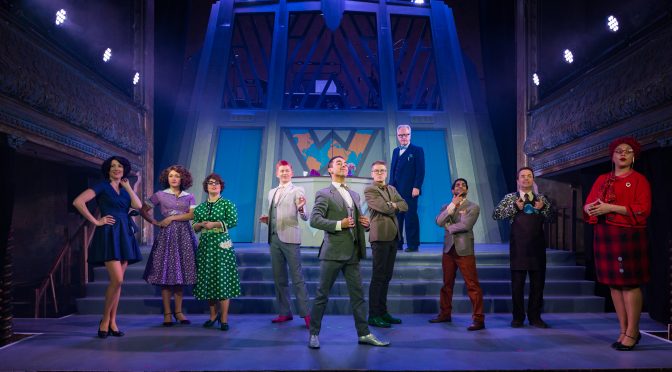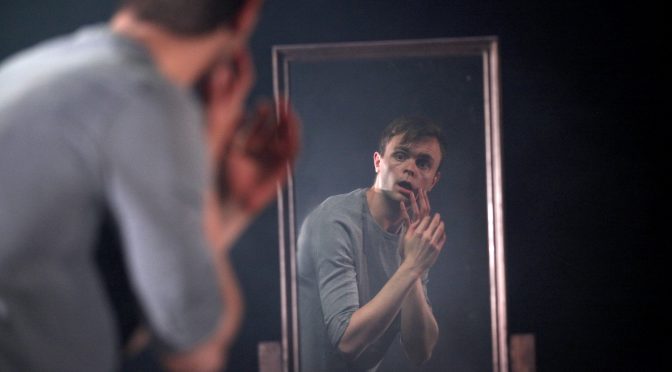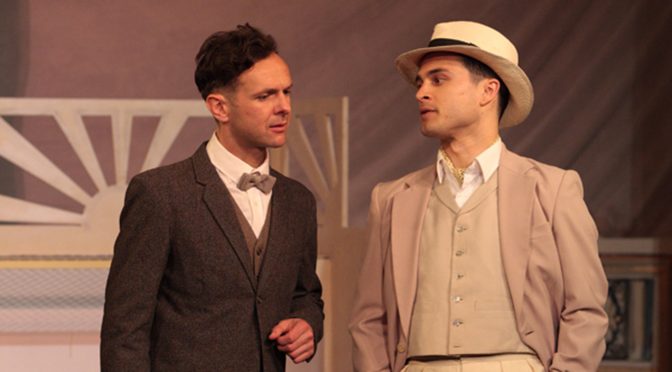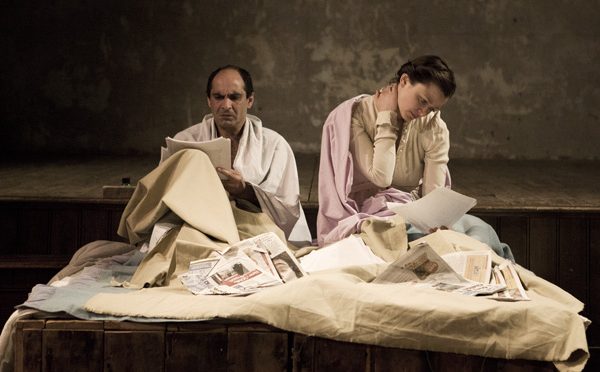Taking up the challenge of Christmas entertainment for a second year running, award-winning writer Piers Torday’s adaptation of John Mansfield’s classic novel is a children’s show with lots of imagination and energy. As our hero Kay, with his chums Mariah and Peter, battle to save Christmas from the claws of an evil magician and a pack of wolves, this show should keep even the most restless of pre-teens engaged. It’s a great introduction to theatre which is, of course, a fantastic gift to give.
Director Justin Audibert is artistic director of the Unicorn Theatre, which focuses on work for younger audiences, and his expertise shows. There’s a mix of simple, effective tricks (especially around the cast taking multiple roles) alongside some impressive video projections from Nina Dunn. As is de rigueur, puppetry is added and there’s a set full of surprises from Tom Piper that culminates in a strong finale. Some of the adult characters we meet aren’t that interesting, and pepping them up through performance has mixed success. Those who play the younger roles have abetter time: Theo Ancient tackles a very dated kind of hero superbly, Safiyya Ingar is good as the tomboy Mariah (let’s skip over her penchant for weaponry), and Samuel Simmonds get some extra laughs out of his bookish character. The real delight, though, is the villains, with Nigel Betts in a silk dressing gown, and especially Sara Stewart, who clearly came top of the class in evil laughs at drama school – a deliciously enviable skill not to be sniffed at.
As for the adaptation, Torday focuses on the adventure story and the result is so fast paced it doesn’t always make sense, even if it’s exciting enough. A gamble seems to have been taken that people know the story, or at least recognise elements within it that have proved so influential on subsequent children’s fiction. Some of this can drag and start to look silly if you’ve any humbug about you. But there’s a lot of fun with the source material as a period piece, with the cast playing youngsters working especially well here. There’s some great slang (scrobble for kidnap) and Ancient has an expert line in wide-eyed naivety. The second act really picks up and becomes much funnier so that, overall, the show makes good its claim of being “a fine tale for Christmas”.
Until 6 January 2019
Photo by Nobby Clark

